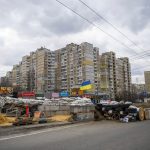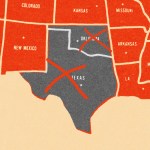Prime
 Some More Details on That DC Caper
Some More Details on That DC Caper 
As we wait to hear more about the arrest of two men trying to infiltrate the Secret Service there’s one part of the story I want to highlight. Multiple U.S. Secret Service officers accepted free apartments for roughly a year from one of the accused men, Arian Taherzadeh. The value of these gifts varied from just over forty thousand to just under fifty thousand dollars annually. This is in addition to various other gifts.
Read More US/EU vs Russia/China and Then Everyone Else
US/EU vs Russia/China and Then Everyone Else
In the first weeks of Russia’s invasion of Ukraine we saw what appeared to be almost universal global condemnation of Russia’s actions. There was that lopsided UN vote condemning the action in which only four other nations, all pariahs or under de facto Russian occupation, took Russia’s side. But over time, a somewhat different story has emerged. Russia has very, very few backers. But there’s a big chunk of the world, likely the majority of the world’s population, living in countries where the governments basically do not want to take sides.
Read More
We have mentioned to you a few times what you almost certainly remembered: that President Trump’s first impeachment was over Ukraine and that Trump’s disgraced 2016 campaign manager Paul Manafort’s work was in Ukraine for the Russia-aligned former President of Ukraine. But there’s more to it than that. If we step back we can see a thread stretching back at least a decade, weaving from one crisis to the next until this moment. We start in the uprising against Viktor Yanukovych, the so-called Maidan Revolution, an event which was triggered by Yanukovych’s decision to move away from integration with the European Union. Vladimir Putin has always blamed Yanukovych’s ouster from power on the U.S. And this was actually the context for an incident which people in the U.S. foreign policy and national security world later saw as a harbinger of what was to come.
Read More
The Times has this harrowing, disturbing report from Trostyanets. It’s a good, reported, observational piece on what happened. One key takeaway is that civilians describe the initial Russian occupying force as professional and agreeable enough. Eyewitnesses describe many of them as disoriented, not even quite sure why they were there. (Remember, the Russian soldiers apparently had very little advance warning they were actually going to war.) But as time went on they got antsy and started running low on supplies. That led to a cycle of looting and the tensions that follow from it. But things really went bad when this initial force was cycled out and replaced with Chechen separatist paramilitaries.

As I’ve mentioned to you before, I continue to find Michael Kofman, who works at CNA, the big Navy think tank, the most measured and informative analyst for information on the war in Ukraine. Today he posted a Twitter thread which has as many questions as answers. But there’s a key dynamic I want to highlight. We tend to make fun of the Russian insistence on calling the Ukraine war a “special military operation.” But this turns out to have important real world implications.
Read More
As I’ve shared with you, I’ve spent a lot of the last month closely reading on-the-ground reports from Ukraine as well as accounts from a spectrum of military analysts, reporters, soldiers of fortune, people on the ground in Ukraine and more. In recent days I had seen a number of claims that Russian troops had carried out mass executions before evacuating or being driven out of towns in Ukraine. Most of these were claims of mass killings of men of military age but others of men and women of all ages. I haven’t known what to make of these accounts because claims of civilian atrocities are the most established kind of wartime propaganda. There is the deceit of war and the fog of war that demands caution in evaluating all new information. Most of these were either anecdotal, second hand or from sources I wasn’t familiar with. But over the last two days reporters have followed in the wake of Ukrainian troops or evacuating Russian troops. Now some of these claims are being validated. They may be widespread, not limited to a few incidents.
Read More
I wanted to flag this article for your attention. It’s written by an Austrian military analyst named Gustav Gressel. He’s one of the military analysts I’ve been following on Twitter. The argument is that Russia isn’t retrenching or narrowing its goals to seek a diplomatic settlement. Rather, it’s in an operational pause in which Russia is restocking men and materiel for a second offensive which will be modified and optimized based on what the Russians learned in their mostly failed original war plan. Based on this analysis Gressel says NATO/U.S. should be pouring more and more big ticket arms into Ukraine in advance of that next onslaught. I’m unable to independently analyze this argument and increasing the scale of arms transfers is a policy question more than an analytic one. But I want to put the argument in front of you because it does seem to square with what a number of these analysts and observers are saying.
Also, Kazakhstan seems to be saying more clearly it’s not taking Russia’s side over Ukraine.



